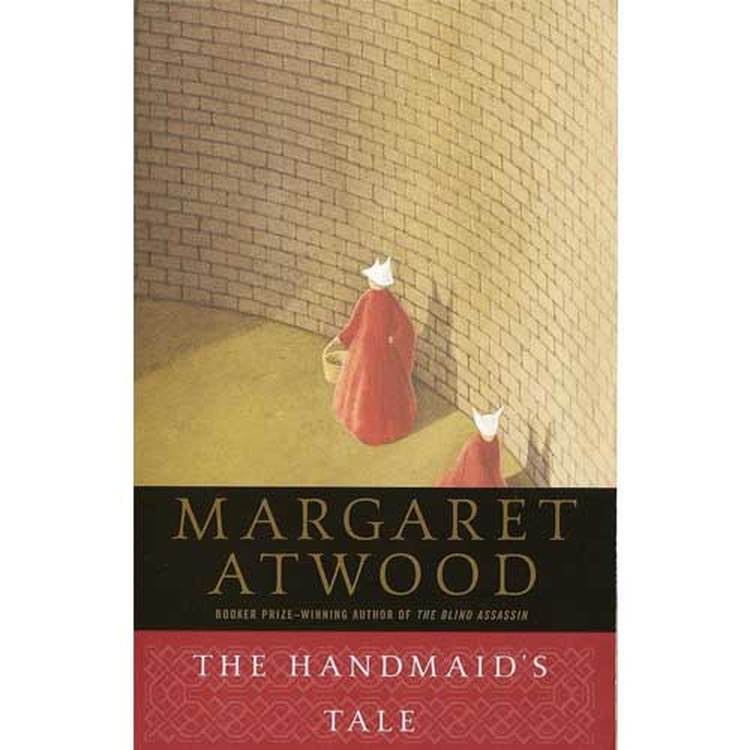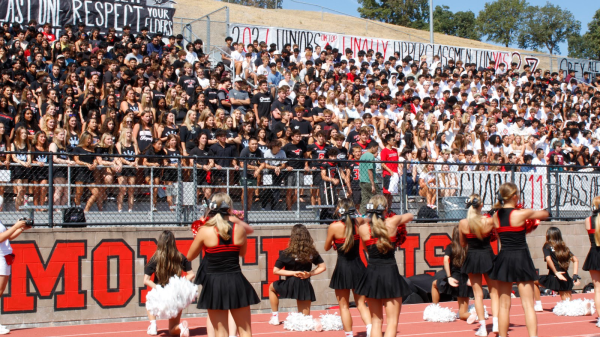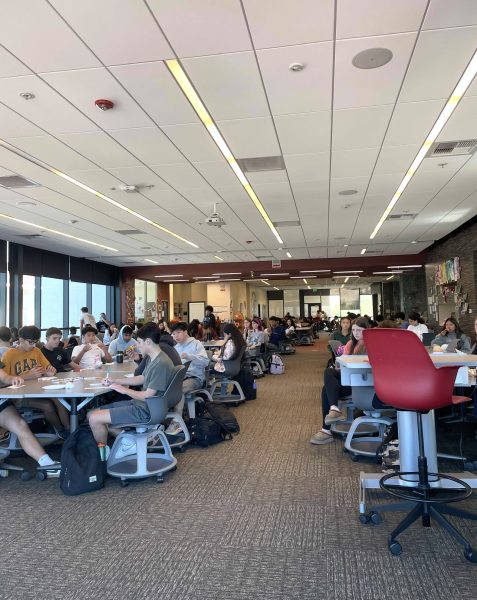It’s time to say “No”
This is the cover of The Handmaid’s Tale; a book English teacher, Katherine Olson, is teaching her senior class in order to acknowledge sexual assault in the current world.
Katherine Olson, an English and Sci-Fi teacher at Monte Vista, teaches The Handmaid’s Tale to her students every year. The Handmaid’s Tale is a dystopian novel that is set in a totalitarian society ruled by a regime that treats women as property of the state with no rights.
This year, Olson has the challenging task of conveying the magnitude of women’s mistreatment to her male students.
“It is easy for us to criticize and judge how women are treated so poorly in novels, but that kind of mistreatment happens in women’s everyday lives,” Olson said.
Olson’s lesson is reflective of the larger “Me Too” movement that began in October of 2017 when hundreds of women came forward with their stories of sexual assault. However, we as a society are still far away from the goal of equal rights.
Moreover, Olson’s science fiction literature class has a 3:1 ratio of boys to girls. The differences in experience for each gender only fuels the difficulty of educating students on sexual assault. She uses the novel to hopefully open the eyes of her predominantly male class to the experiences of women in our society today. Of course, it is important to acknowledge that regardless of gender, sexuality, and race, anyone can be sexually assaulted. However, there is an overwhelming amount of women that are victims of assault. According to RAINN, three percent of American men have been raped compared to the 16% of American females that have been, making it hard for many males to understand the severity and prominence of sexual assault in a woman’s everyday life.
In the Fall semester, Olson taught The Handmaid’s Tale through class discussions, note-taking guides, and essays. During class discussions, Olson would reference specific passages from the book and relate it to current events to help her students understand the parallels between the fictional world and the real world. Furthermore, she has assigned analytical essays to her students that revolve around sexuality and how sex is politicized and commoditized. Students were tasked to connect the focus of the essay back to the real world.
“It wasn’t as successful as I wanted it to be,” Olson said. “ I think my students have a lack of experience with some of these issues which causes them to not fully understand.”
To help her students understand the severity and reality of sexual assault, Olson recieved confessions from students in Kimberley Gilles’ English class. In these confessions, students anonymously described their experience with sexual harassment. Olson plans to share some of these confessions to her senior class to prove that sexual assault holds prevalence in people’s lives outside of the fictional world. These confessions included rape allegations, butt grabbing, and comments towards a girl’s appearance such as being “too flat” or “not skinny enough”. One male student even mentioned a “sneak shot” method in which “nude pictures of girls [are] being taken and traded around like a currency” on Snapchat. In many of the other confessions, girls had their butts grabbed by men and often the man’s response was that he “thought she wouldn’t mind”, despite displaying obvious discomfort.
Several of Olson’s senior students have said that they were unaware of any sexual harassment happening on campus. But as seen in the confessions, assault arises in less obvious forms on high school campuses. Blackmailing for nudes, butt grabbing, and uncalled for inappropriate language are at times used to describe a woman’s outward appearance.
“I was a guest at Dougherty Valley High School’s homecoming dance this year,” senior Skylar Feick said. “I had an incredibly fun time, until someone grabbed my butt. I was ready to confront the person, but I was surrounded by a crowd of people and at that point it could have been anyone.”
The lack of publication of these instances are one of the many reasons students aren’t aware that sexual assault is an issue on their campus. Students often choose to stay silent if they have ever heard or seen a student being harassed due to the taboo surrounding this topic. To many, it appears as if there is no punishment. Oftentimes, however, this is because of laws respecting students’ privacy where administrators can’t reveal punishments. Olson has been sexually harassed on the Monte Vista campus twice; once by a student and another time by a fellow teacher. And in the case of her student, Olson said she was not aware of any punishment besides the student not being allowed in her classroom. This is why Olson is taking the steps to improve the awareness of sexual assault on the Monte Vista campus. Although, she notices a worrying silence with her senior female students.
“Girls, where is your voice?” Olson said. “If you are not willing to say something now in this safe space, how are you going to stand up for yourself [elsewhere]. If you do not have the voice to say ‘no’ now, then how are you going to do that in a real-life situation.”
In case anyone needs a refresher, women are not objects, nor jewelry, nor prizes to be won. They are people with emotions and rights whose intelligence should be valued more than their physical being. And a rule of thumb, just because it didn’t happen to you, does not mean it doesn’t happen to anybody. Hopefully one day no one will ever have to say “Me Too” again.

Marie Shvakel is a 16-year-old junior. This is Marie’s third year writing for The Stampede. She enjoys...







